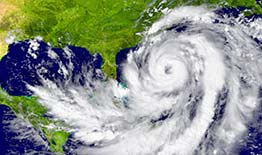Emergency Response
 ILTA member companies are committed to keeping their employees and the response community safe in the unlikely event of an emergency situation. They build partnerships with emergency services personnel in their communities so that everyone involved has the necessary information to make informed decisions and safely respond to a disaster. Through this essential information exchange and coordination as well as through response drills, training exercises and other ongoing actions, terminal facilities are continuously developing measures to mitigate or minimize the effects of an incident.
ILTA member companies are committed to keeping their employees and the response community safe in the unlikely event of an emergency situation. They build partnerships with emergency services personnel in their communities so that everyone involved has the necessary information to make informed decisions and safely respond to a disaster. Through this essential information exchange and coordination as well as through response drills, training exercises and other ongoing actions, terminal facilities are continuously developing measures to mitigate or minimize the effects of an incident.
Facility and/or emergency response plans are required by EPA, USCG and PHMSA regulations for facilities that could release hazardous materials into the environment.
Additionally, ILTA has provided significant input during the development of important documents that promote the dissemination of critical information between government agencies and industry, further utilizing industry trade associations, and encourage regular and periodic response drills.
Enhancing Emergency Preparedness for Natural Disasters
ILTA participated in an effort by the National Petroleum Council, a federal advisory committee to the Secretary of Energy, to develop recommendations for improving the resilience of the natural gas and oil infrastructure. The 2014 report, Enhancing Emergency Preparedness for Natural Disasters, provides advice on how the oil and natural gas industry and government can better prepare for and respond to significant disruptions to oil and natural gas supply chains caused by natural disasters, such as hurricanes, earthquakes, and floods. The resulting Clear Path response exercises that have been hosted by the Department of Energy have provided the opportunity for industry and government to drill on various types of emergencies that could affect critical infrastructure over wide areas. ILTA and its members participated in these exercises to ensure that terminals will be prepared when such emergencies occur.
ILTA also worked in the development of the Oil and Natural Gas Industry Prepardness Handbook, an April 2016 report that outlines stategies to prepare for and respond to physcial disrruptions to the oil and gas supply chain. The strategy document helps ensure that the roles, responsibilities and needs are clearly identified prior to any events that may affect the integrity of oil and natural gas systems. The oil and natural gas industry has long maintained and been acknowledged for its serious commitment to the safety of infrastructure, workers and processes. Disruptive events, whether man-made or natural, should be approached with the same commitment to safety, resilience and the needs of the community. While resources and information are often held at the regional or national level, it is the facility operators and those on the ground who will have the best ability to assess their systems, identify needs, and execute the work needed to restore services. The strategy document lays out how local responses can be aided by state and regional associations, established relationships with governments and communities, and how corporate and federal relationships and capabilities can facilitate efficient response and recovery at the local level.
Potential Waiver Requests
ILTA assisted in the development of a comprehensive checklist of federal regulatory waivers that might be needed during a state of emergency in order to ensure the most efficient response and recovery. The list was included in the Oil and Natural Gas Industry Emergency Preparedness and Response Handbook, updated in April 2016, and in the Playbook for an Effective All-Hazards Chemical Sector Response, updated in October 2016. Through its participation in the critical infrastructure Oil and Natural Gas Subsector Coordinating Council (part of the Energy Sector Coordinating Council) and the Chemical Sector Coordinating Council, ILTA continues to contribute to updates of these documents.
Energy Waiver Library
The Department of Energy's Energy Waiver Library consolidates common waiver and special permit resources for energy emergencies and natural disasters. It contains background information on waivers and special permits, historical examples of past use. links to previously issued waivers, and contact information to request a waiver.